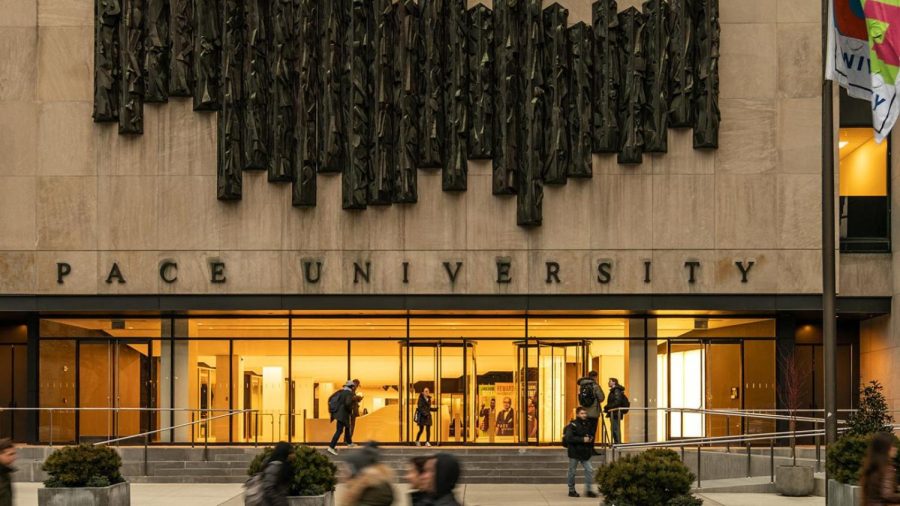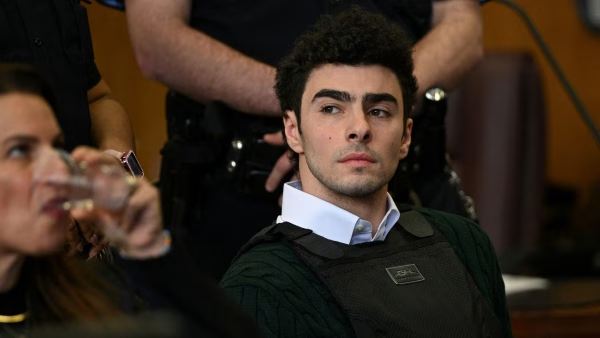Adjunct advocacy with University Professor Eve Becker
December 12, 2022
It is no secret that the teaching profession is undervalued and severely underpaid, but when adjunct professors are brought into the equation, that simple truth becomes much more complicated.
The Pace Press has investigated the plight of adjunct professors before, this time, we get a look at the current situation through the eyes of Eve Becker, an adjunct English professor at the University.
As a former middle school teacher, Becker has always had a heart for teaching. She has been teaching at the University since 2021 while also maintaining a position at Columbia University as a Student Teacher Supervisor. Outside of this, she is a best-selling author of many young adult novels, a Pushcart Prize-winning personal essay writer and the founder and director of an organization that hosts writing retreats for educators.
“I love my job, this is not to make you feel sorry for me. I’ve chosen my career path,” Becker assured my class on a day she dedicated to adjunct advocacy. This is a Creative Nonfiction course, so to raise awareness of the topic, we read personal essays by adjunct professors. “But I didn’t know the extent of adjunct working conditions when I came in and it was stunning,” she added.
Understandably so, Becker is passionate about the situation and has taken the time to educate her students on the truth behind the teaching profession. When she asked how many people in the class even knew what it meant to be an adjunct, only three of 15 could raise their hands confidently. This is especially interesting considering that two-thirds of the University’s teaching staff is adjunct–and the number is even higher in the English department, according to Becker. In order to support our professors, we must first understand the situation.
For adjuncts, any work done outside of the classroom is unpaid; unlike full-time professors, they do not get paid a salary. This means that the time spent making lesson plans, grading papers, holding office hours, emailing with students, writing recommendations and so many other integral parts of the job goes unaccounted for.
“It’s not just Pace–it’s a problem at nearly every college and university in this country. But Pace adjuncts are some of the lowest paid in the city.”
“I would say that for every one hour spent in the classroom, I spend anywhere from two to seven hours outside of it doing unpaid labor,” Becker explained. “So, if I’m lucky, my pay is minimum wage–I could probably work at Trader Joe’s for the same.” Becker is not joking. Unfortunately, most adjunct professors need to have other jobs in order to survive. In fact, according to Becker, 89 percent of adjuncts in the U.S. teach at more than one school.
Becker goes on, sharing that because she’s not part of faculty events and meetings, she’s missing a sense of community at the University. “When I taught middle school, I had a salary, health insurance, retirement benefits and colleagues I could talk to. My department chair and program heads at Pace are lovely and responsive, but my communication with them is limited to nuts and bolts emails. It’s rough on them, too. They’re working exceptionally hard to run programs on shoestring labor.”
Becker firmly believes that nothing will change until every adjunct in the country stops working on the same day.
Recently, NYU faced the threat of a strike when its adjunct faculty contract was set to expire. According to Left Voice, a tentative six-year agreement was reached hours before its expiration, resulting in “a new minimum pay of $10,400 per standard course (a raise of nearly $4,000 per course) [and] a $2,000 pandemic pay bonus” among other things. Though this is a step in the right direction, it’s not anywhere near what they should be getting paid; still two-and-a-half times what adjuncts at our University are earning.
Several other schools in the City are pushing back. On Dec. 7, The New School entered its third week of strike, officially taking the title for the longest adjunct strike in U.S. history. Though they have now gone into mediation, which is a potential sign of progress, The New School president, Dwight A. McBride, “warned that the university may cease paying striking workers’ salaries” should the strike continue, according to The City.
What can students do?
Make noise about this.
By now, I’m sure we are all aware that our professors don’t teach here (or anywhere) for the money–they teach here for us. As a student, you might feel as though you have a responsibility to give back to those who have poured so much time and energy into you. If that’s true, it means that there is a responsibility to fight this injustice alongside our professors.












